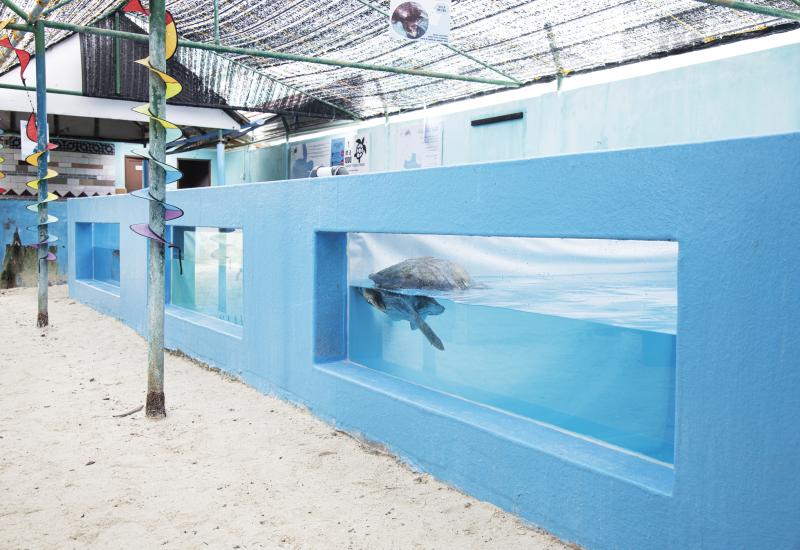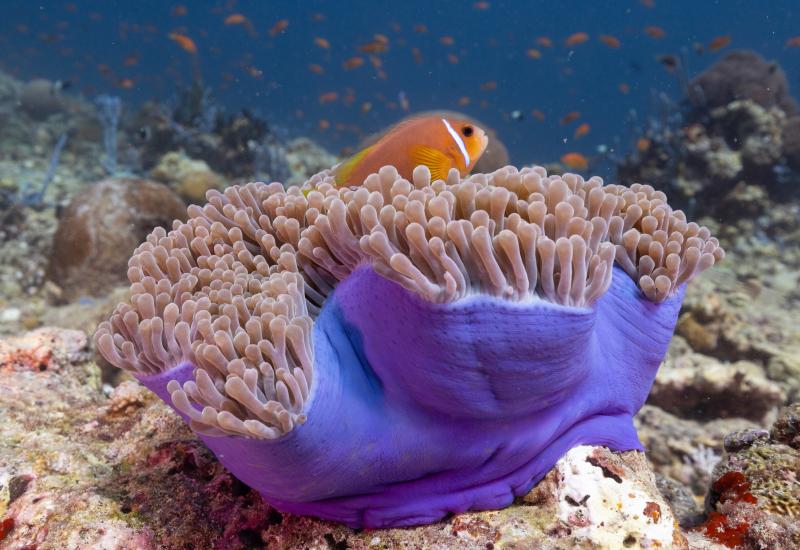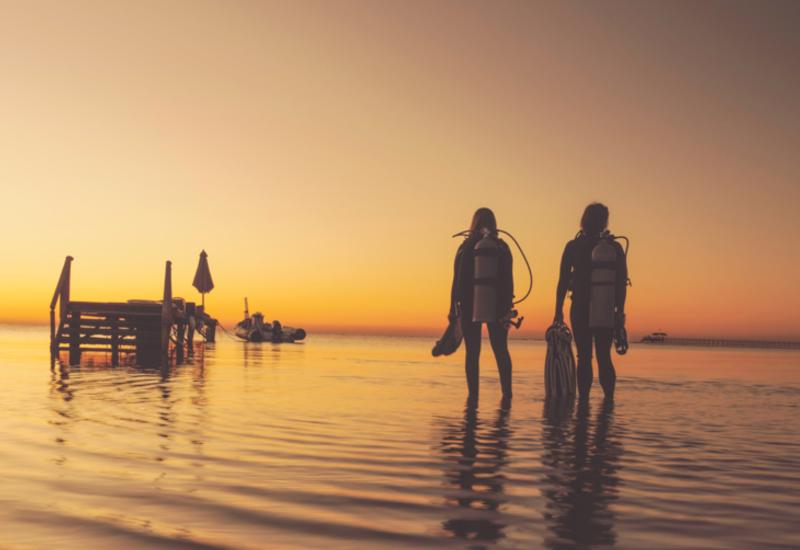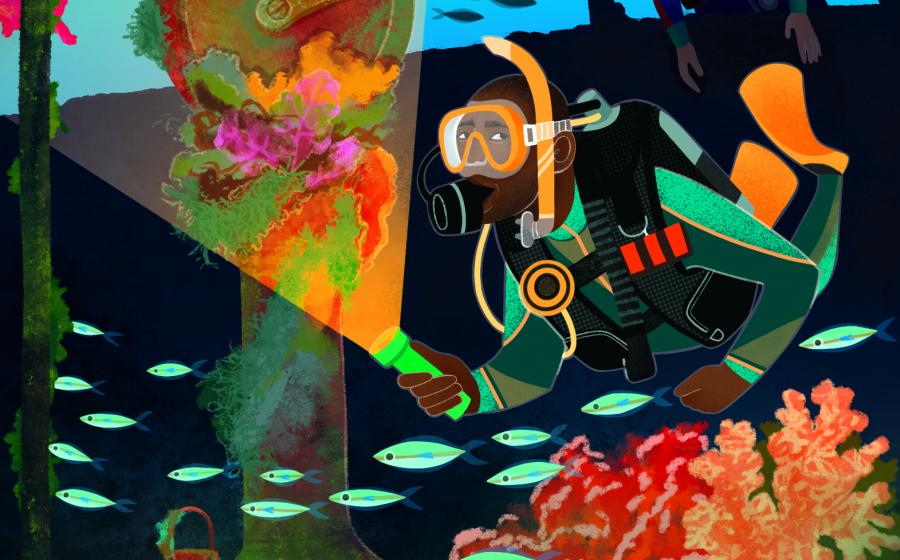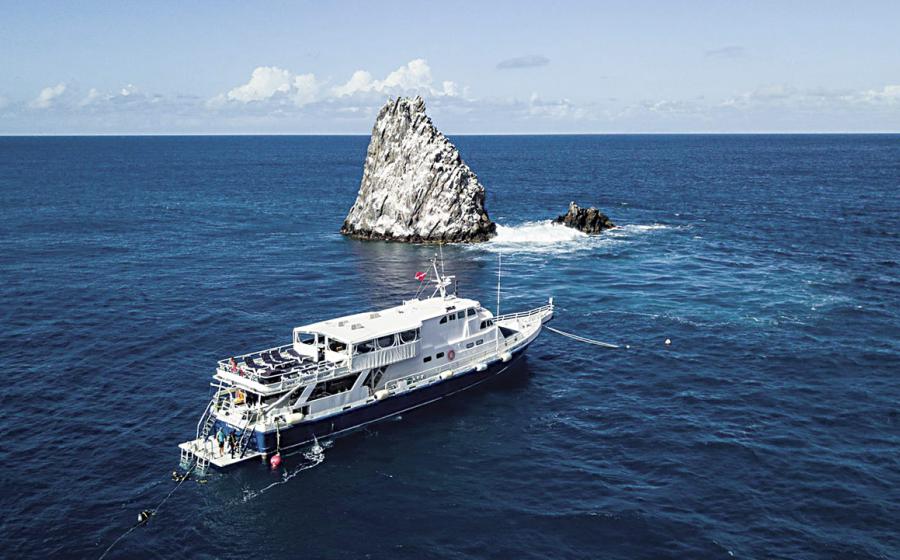Five Tips for a Great Scuba Diving Trip to the Maldives

Shutterstock.com/WildestAnimalLarge school of manta rays feeding on plankton, in Hanifaru Bay, Indian Ocean, The Maldives.
1. Drift Dives
Out the airplane window, the Maldives’ 26 atolls look like bright white life preservers tossed across the bluest expanse of Indian Ocean (there are around 1,200 islands and cays in the mix here, too). Pelagic species—mantas, whale sharks and other wonders—are a drift dive favorite at myriad sites around the passes and within the lagoons.
2. Fresh Catch
Maldivians are highly proficient with spearfishing and the hook-and-pole method, too, and many locals make their livings harvesting the fruits of the sea (after tourism, fishing is the second biggest industry). Plan a trip from your resort to Malé, the capital, to browse the fresh catch at the fish market, with skipjack and yellowfin tuna among the many whoppers.
3. Snorkel Only
Scuba diving is no longer permitted in Hanifaru Bay, within legendary Baa Atoll. But the huge feeding congregations of mantas that amass here by the hundreds from May to November draw snorkelers to witness one of the ocean’s most epic aggregations.
4. Luxury Accommodations and Dining
The Maldives have overwater bungalows by the hundreds. But for something you can’t do anywhere, book at a table at an underwater restaurant or bar at spots like Subsix at Niyama and Ithaa Undersea Restaurant. The latter sits 16 feet below the water’s surface, so you can think of your meal as an extended safety stop—with fresh fish on the plate and also swirling all around.
5. Arrive Dhoni Style
There’s nothing like taking the local transport when you travel. And around the Maldives, that means seaplanes, inter-island ferries and dhonis—traditional Maldivian boats that serve as rustic ferries, charter boats for day trips and even liveaboards.

